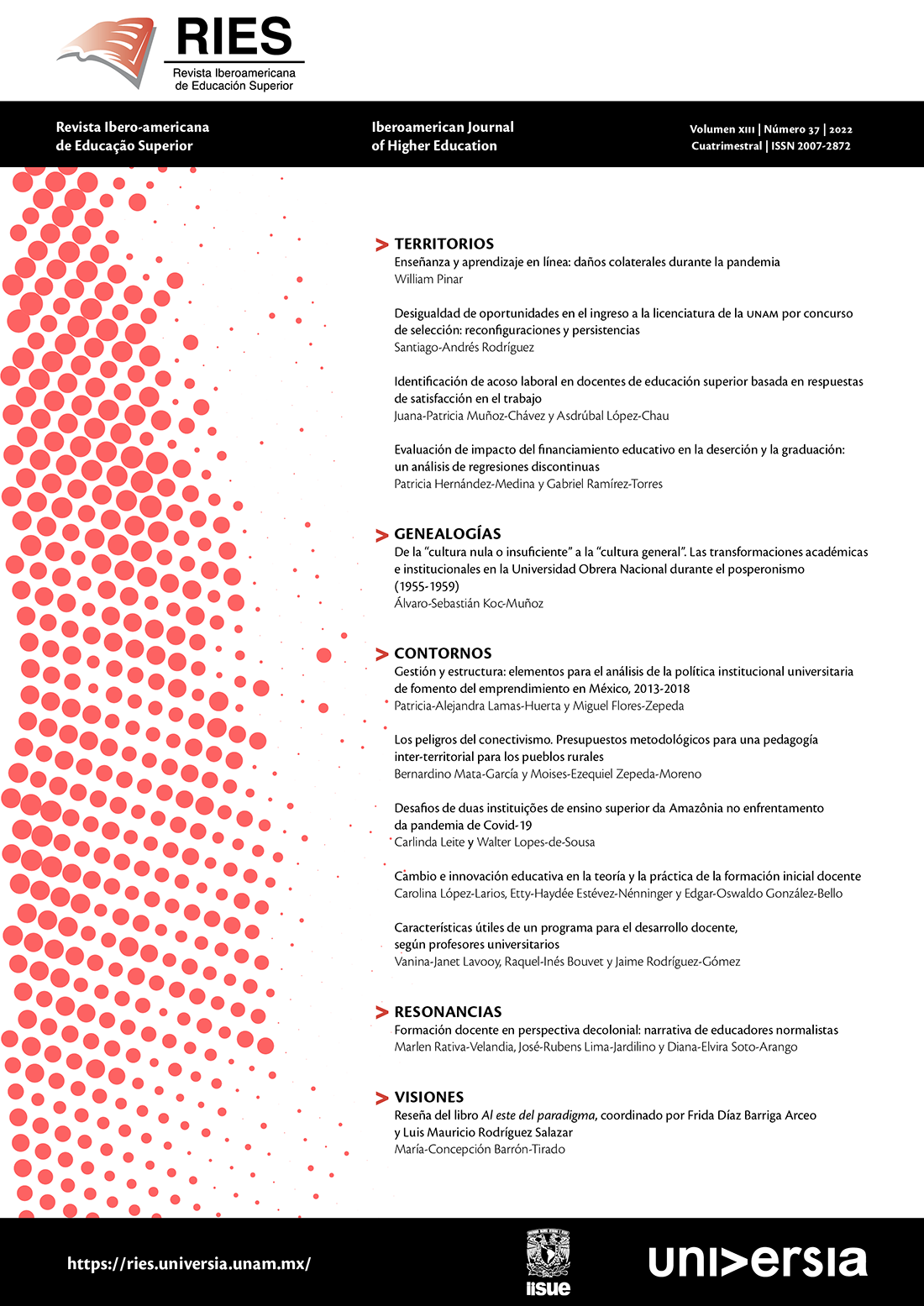The dangers of connectivism. Methodological premises for an inter-territorial pedagogy addressing rural populations
DOI:
https://doi.org/10.22201/iisue.20072872e.2022.37.1307Keywords:
rural education, distance higher education, information and communication technologies, MexicoAbstract
This article aims to examine the most adapted methodologies for the connective integration of rural populations. First, a brief approach to the theoretical and methodological components of the so-called connectivism is developed, with as purpose to carry out a basic recognition of the epistemological foundations of what could be the main tool for the articulation of platforms, educational and didactic methodologies by means of the Internet. This approach is accompanied by a series of critical reflections about the discursive components of this knowledge paradigm, together with the necessary problematization of its hegemonic relations. After recognizing the contradictions inherent this system of knowledge that has become a basic tool for public education and more so for rural populations at university level, as a result of the experience with diverse alternatives of knowledge the authors propose what they define here as inter-territoriality, that aims to be an educational medium that is both didactic and pedagogical and allows rural populations to make use of the possibilities offered by the interconnection to the network, respecting the fundamental values and pedagogical systems that have been generated in the historical struggle for an education adequate to their socio-territorial characteristics.



